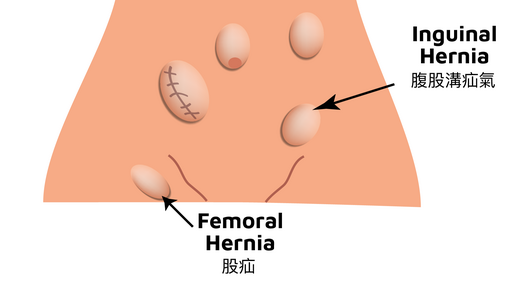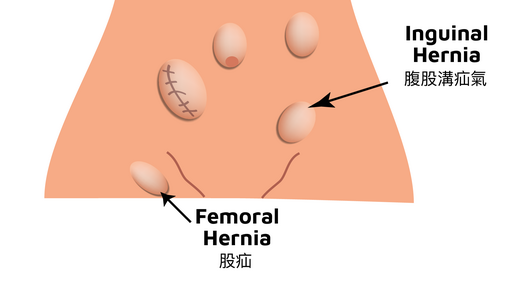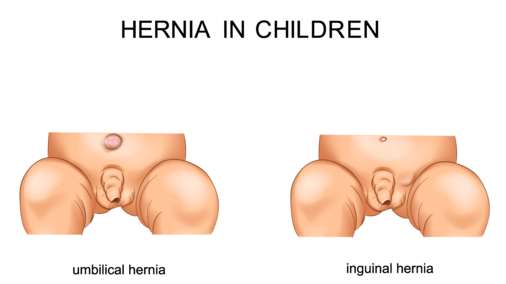Hernia
What are Hernias
HerniaHernias
What can cause hernias?
Hernias usually occur when there is a cause for increase abdominal pressure. This can happen in patients suffering from certain conditions including benign prostatic hyperplasia, constipation, chronic cough and obesity. Sometimes, they can occur with heavy lifting. Hernias can be present at birth, but the bulging may not be noticeable until later in life. Some patients may have a family history of hernias.
How often do they occur?
The frequency of patients suffering from hernia depends on the type of hernia. Hernias can occur in adults and children. Please refer the respective sections in other parts of the website for reference.
What are the symptoms?
The symptoms hernias can cause depends on the type of hernia. The most common abdominal wall hernias usually present as a bulge. There can also be discomfort or pain. The discomfort may be worse when you stand, strain or lift heavy objects. Occasionally, the hernias can present as an emergency condition.
Signs and tests
A doctor can confirm the presence of a hernia during a physical exam. The bulge can increase in size when coughing or straining. The bulge may not be obvious in children except when they are crying or coughing.
Treatment
Hernia is usually treated by surgery. The type of surgery will depend on the type of hernia. Small asymptomatic hernias can sometimes be observed. In some patients with multiple medical problems, surgery may not be suggested by your doctor. Please refer to other sections in the website for more information.
Emergency surgery is sometimes needed. The organs in the hernia may become stuck and even die because it loses its blood supply. Surgery would be required to remove the dead organs and repair the hernia. Emergency hernia surgery greatly increases the risks of the operation and is usually performed by open surgery.















